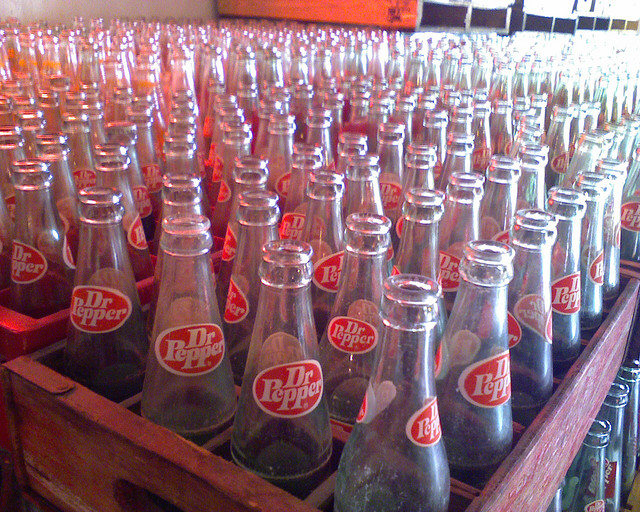Ann Hillesland
When I was a kid, I’d ride the BART train through Oakland, pretending I controlled the world. Stop, I’d whisper, and the cars on the street would halt at a red light. Stop, I’d tell the woman, barely seen, carrying a brown sack of groceries in front of one of the peeling-paint houses near the tracks. We went by so fast, it was like people on the street were standing still.
The Oakland streets were a different gray, a harder, more metallic color than the groomed streets of my suburb. Even friendly sights, like the Mother’s Cookies factory, looked hard-edged. Outside the train, the world might have smelled of oatmeal and sugar and chocolate chips, but plywood covered the shop windows and the heat rose in waves from the ground.
In our hot garage, I pointed at my father’s HO railway setup. “What’s ESSO?” I asked. The gas station was one of my favorite parts of his little world. An attendant in a blue hat stood by the old-fashioned gas pumps, the plastic base for his feet painted gray to match the gray sandpaper concrete he stood on.
“It’s what EXXON used to be,” Dad said. Sometimes he let me watch him work, as long as I was quiet. Not my brothers, just me. She knows how to shut up, he’d told Mom. If it was a good day, his glasses pushed mellowly down his nose, the train running without a hitch, I could ask a little. Other days, he watched the train in silence, his eyes snaking with the train. I stood by his tall stool as his train ran through the village, across the main street, into the tunnel and out again to circle, circle.
In Oakland, I looked down into yards with old washing machines, yards with rusted swingsets, yards with colorful laundry hung out like candy necklaces. I’d watch a pickup silently pull up to a diner. You can get out, I’d say, and the pickup door would open. Then I’d be gone, benevolent, on to a new part of my little kingdom.
The model train sounded like my mom’s sewing machine. It filled the quiet, oily-smelling garage. He’d spraypainted the lawns green, but they didn’t look like grass unless I squinted. The flower beds looked real (decorated with shavings from my Carnation Pink crayon) and the bushes and trees too, made from some springy stuff that fascinated me—open and fibrous, like plastic moss. I’d touch it with the tip of my finger if Dad was futzing with the engine. The train always seemed to need some kind of repair, or the track looked warped, or something. So much to be done when you’re God, especially when you’re God on a budget and have to keep your kids in tuna casserole and milk and KMART shoes. The town grew slowly, with big building booms around Christmas or Father’s Day. “My favorite kind of tie,” he’d joke, opening a box of train track, the bendable kind that could be angled lightly to circle, circle.
I shouldn’t have touched the train. It was delicate, the caboose’ handrails thinner than toothpicks. I lifted the caboose in my small hand. It was heavier than it looked, leaping out of my palm to the hard concrete, cracking so loud, pieces skittering away like lizards, and my father raising his head from regluing a bush on the mountainside and the open hand rushing towards me, my vision already gray and wavy. Stop.
Ann Hillesland’s work has been published or is forthcoming in literary journals including Fourth Genre, The Los Angeles Review, Open City, Prick of the Spindle, and SmokeLong Quarterly, and has been selected for the Wigleaf Top 50 Very Short Fictions 2012. Her work has also appeared in the anthologies A la Carte: Short Stories that Stir the Foodie in All of Us and The Incredible Shrinking Story. She is a graduate of the MFA program at Queen’s University of Charlotte.



